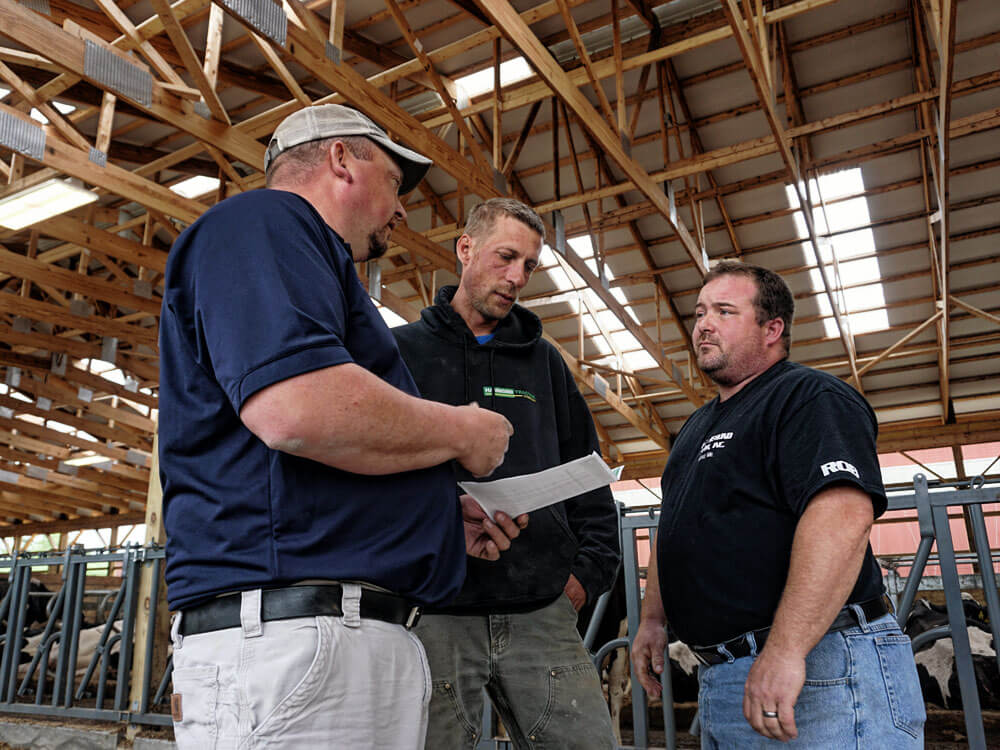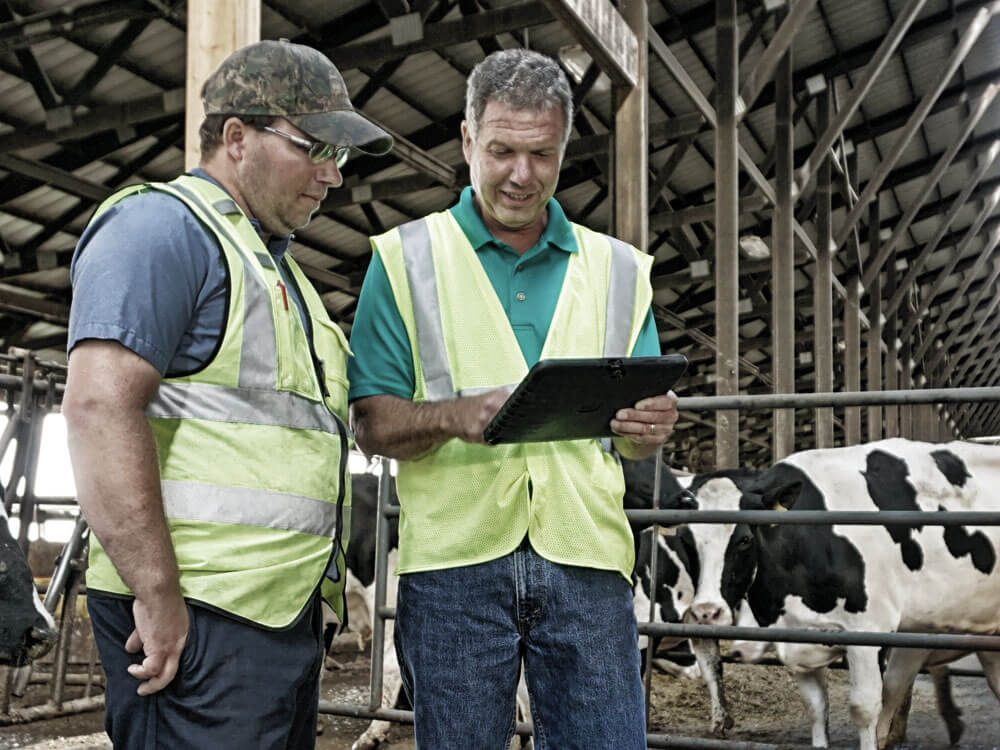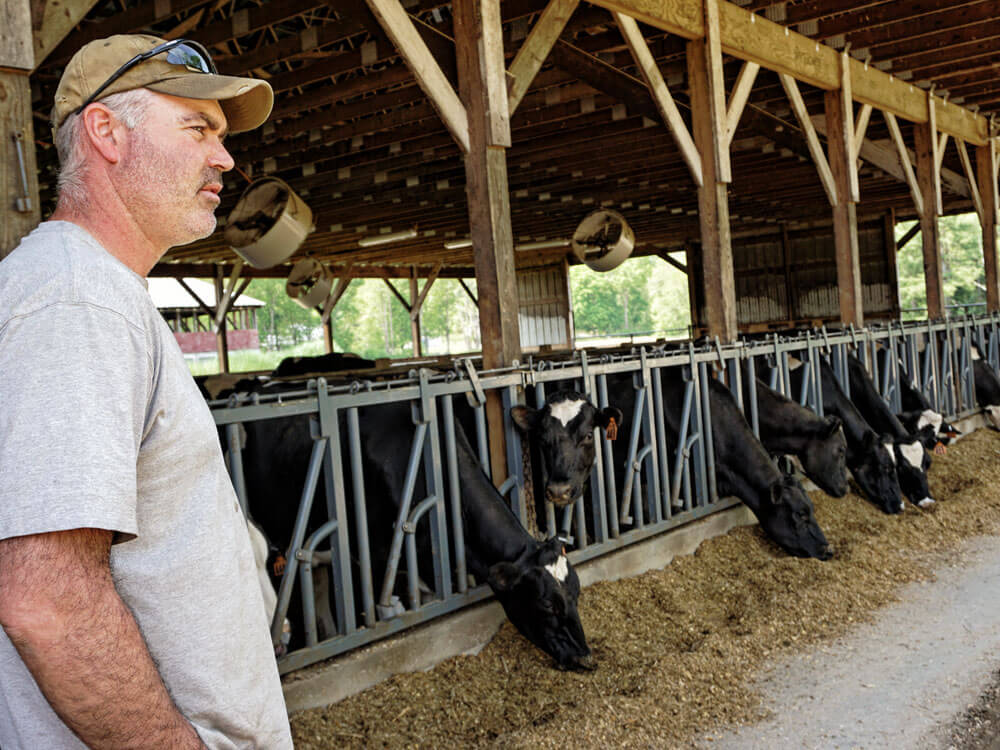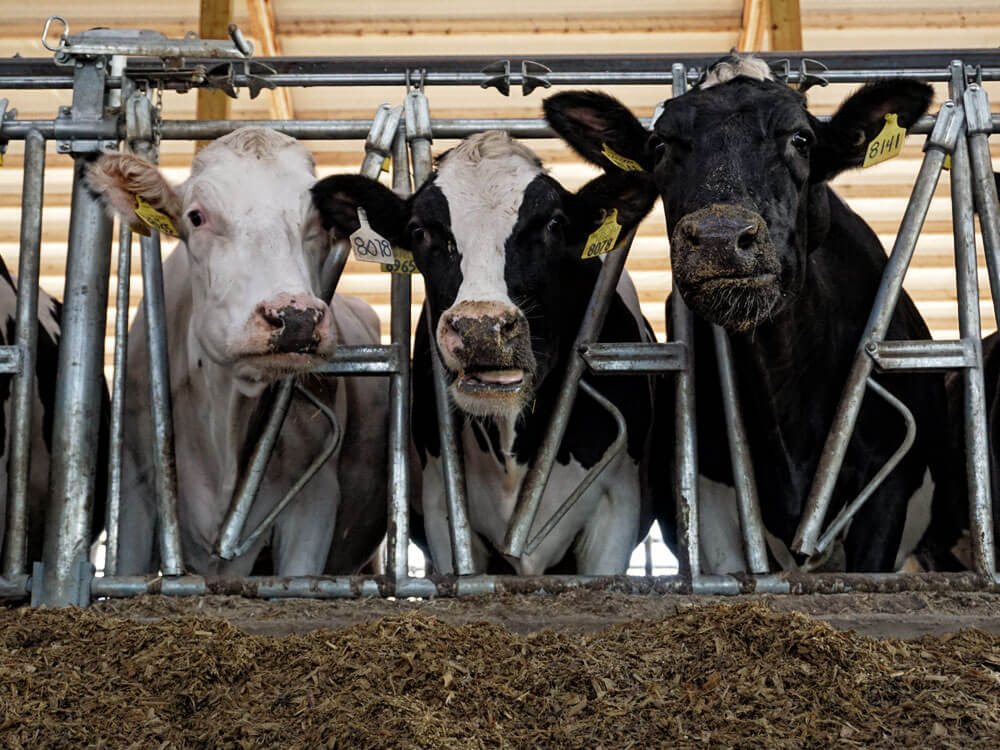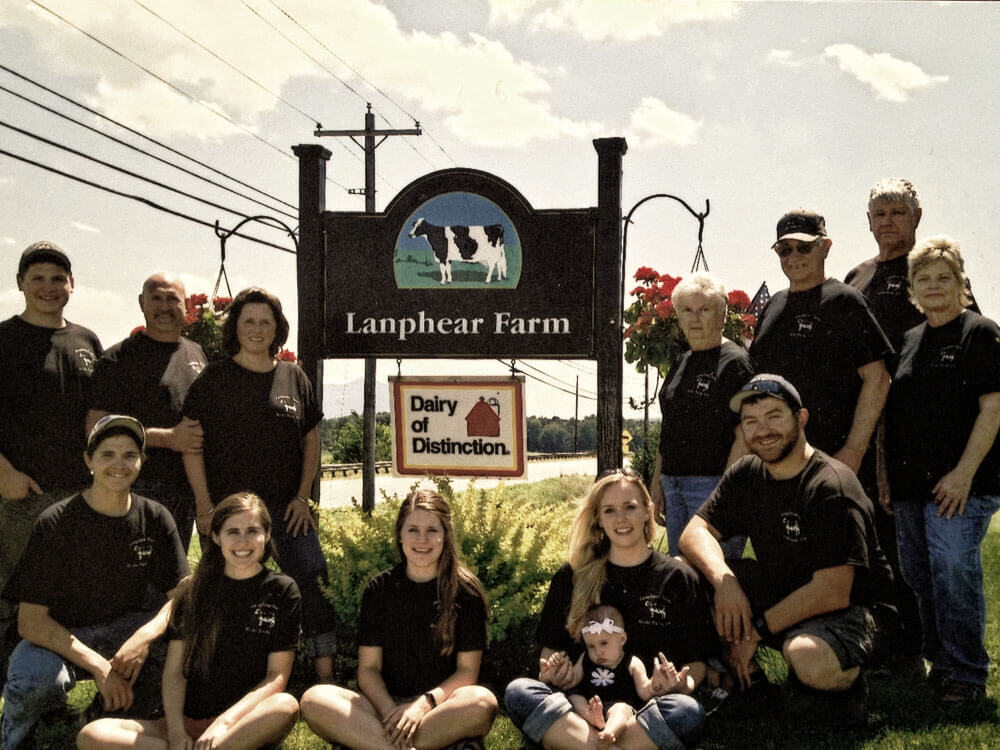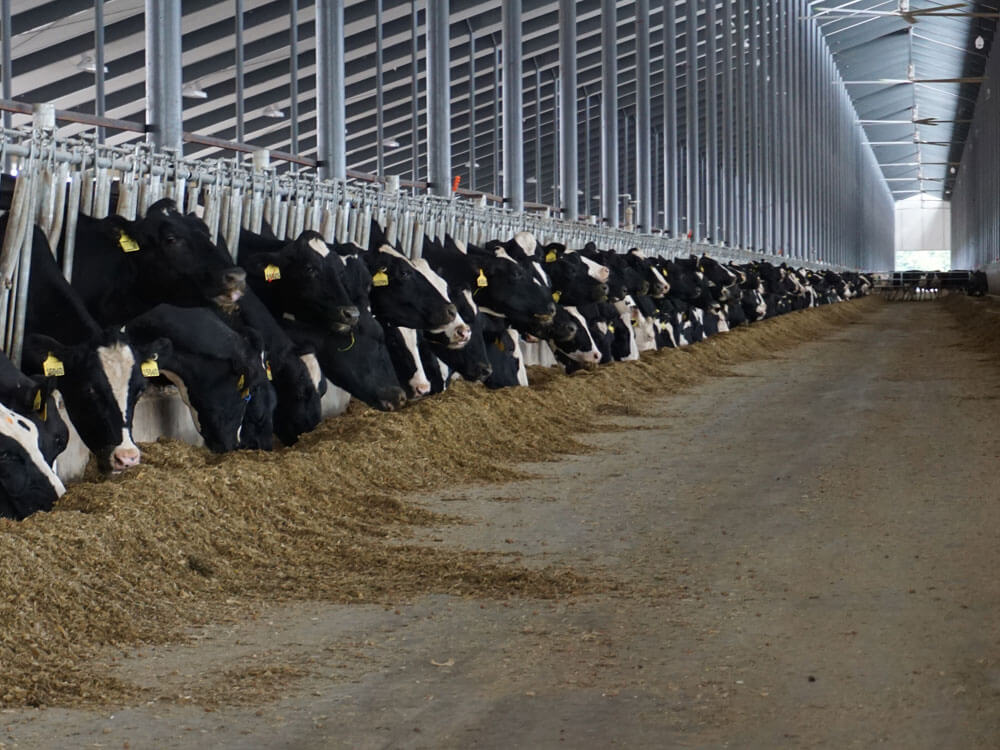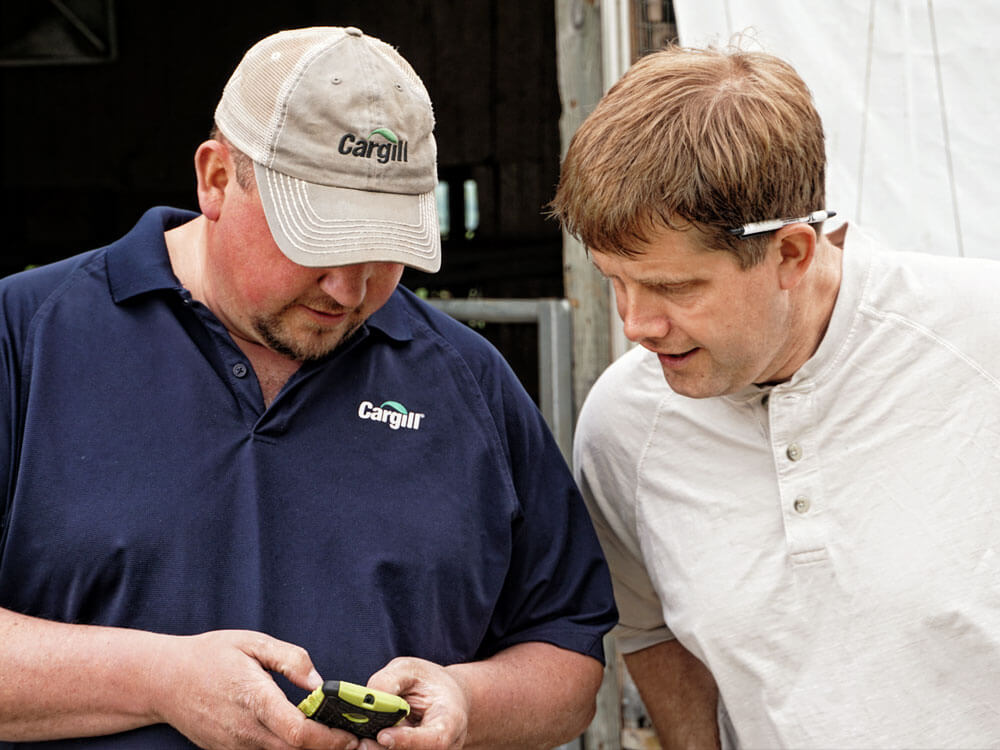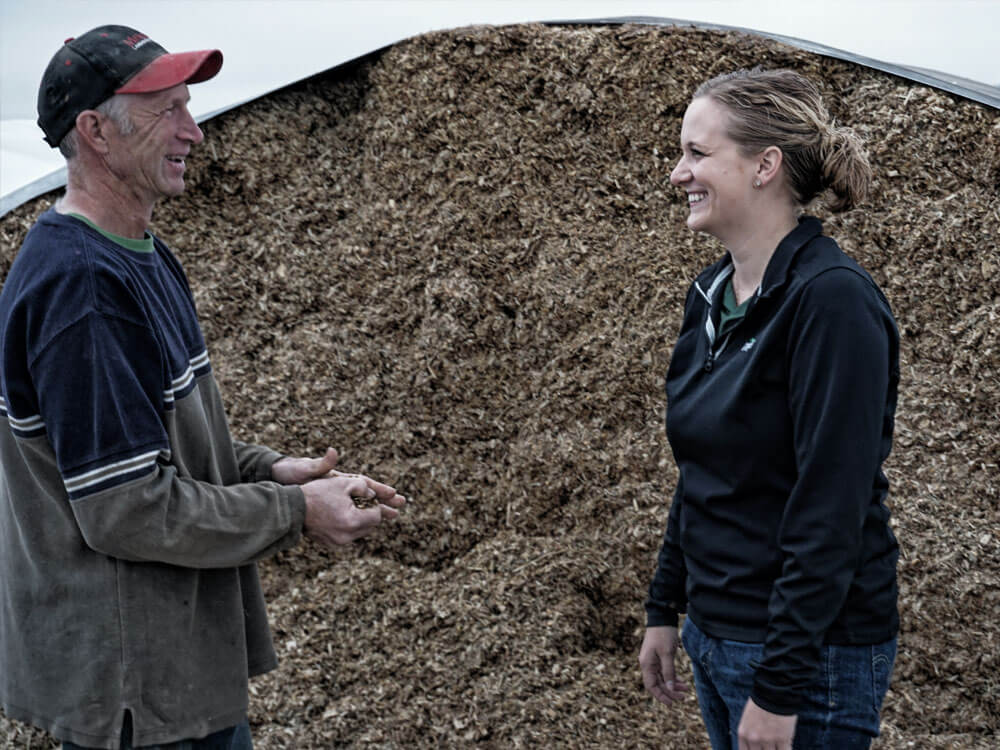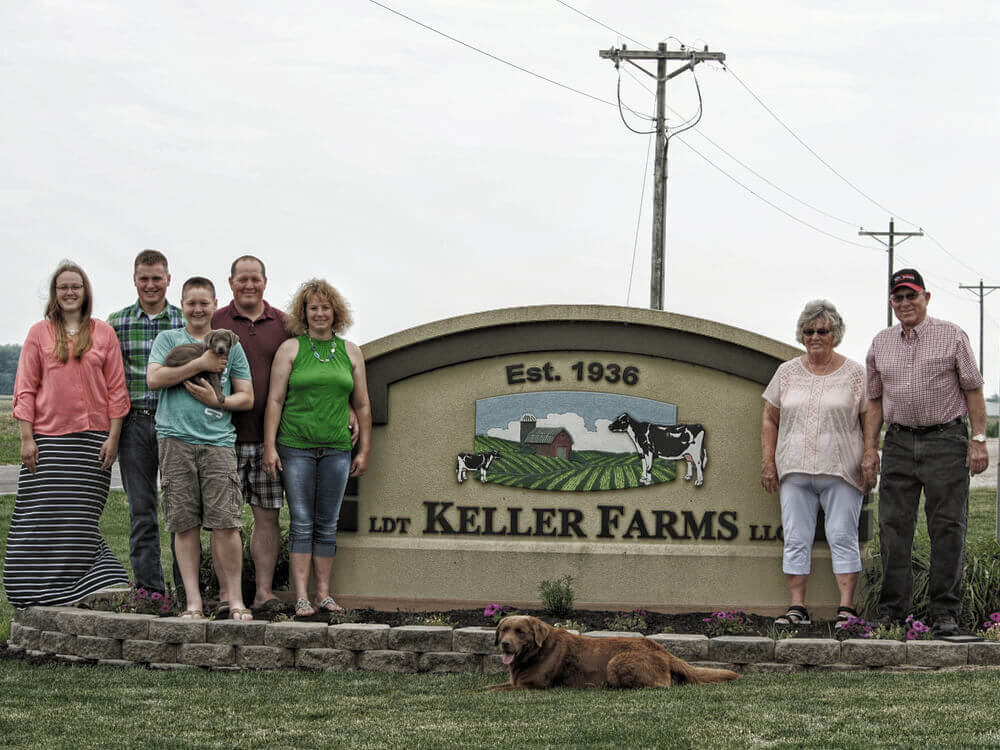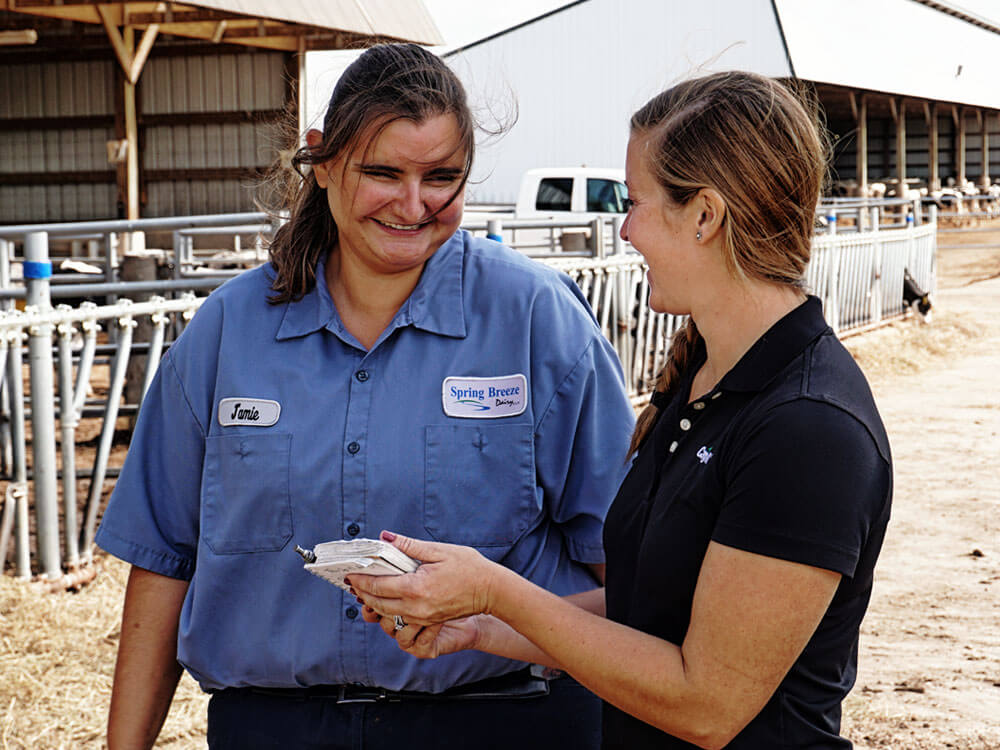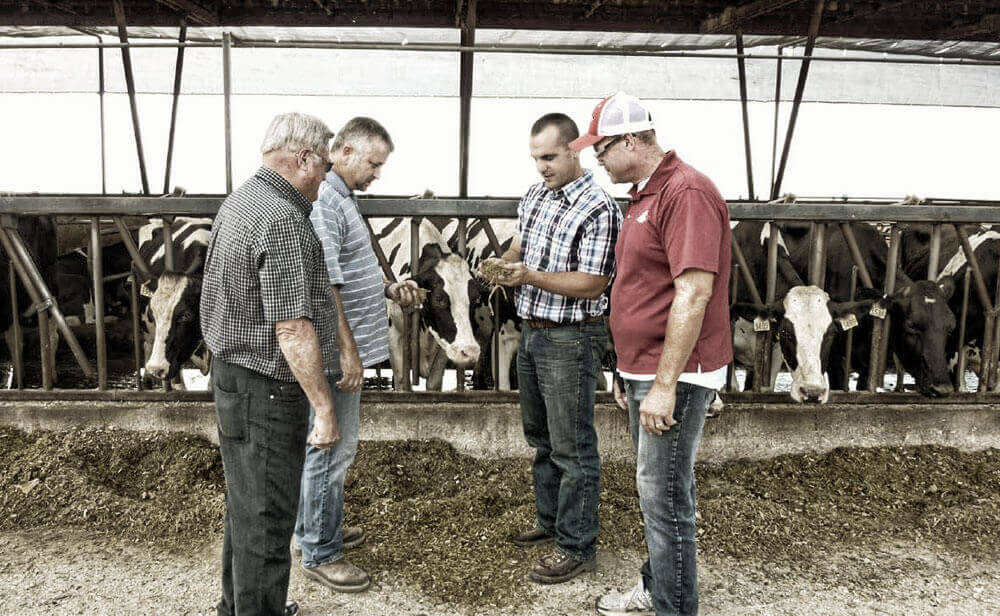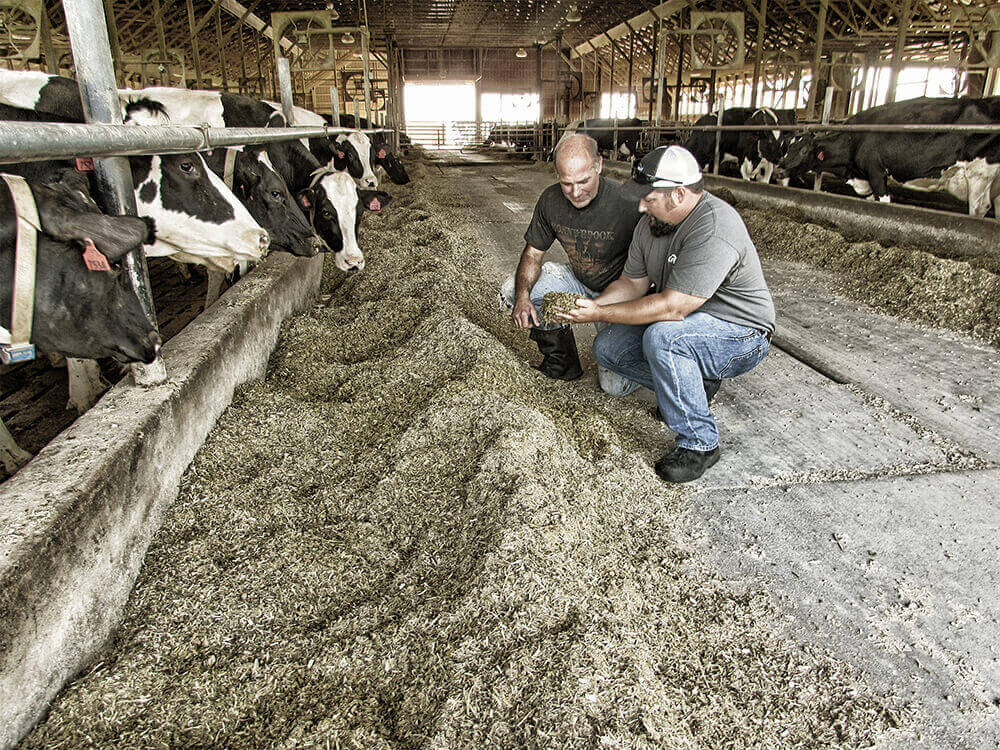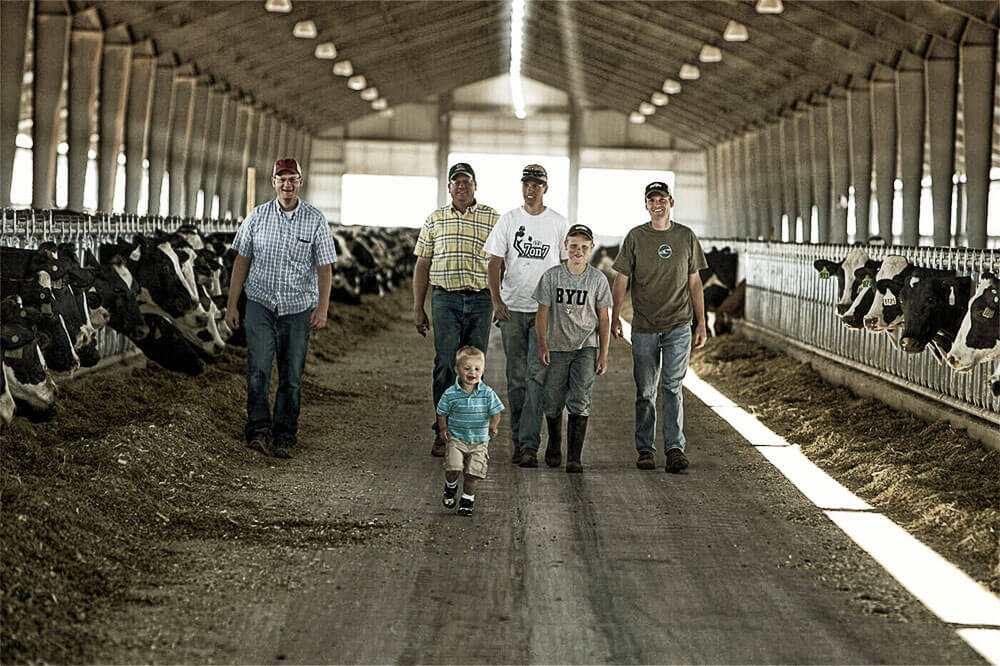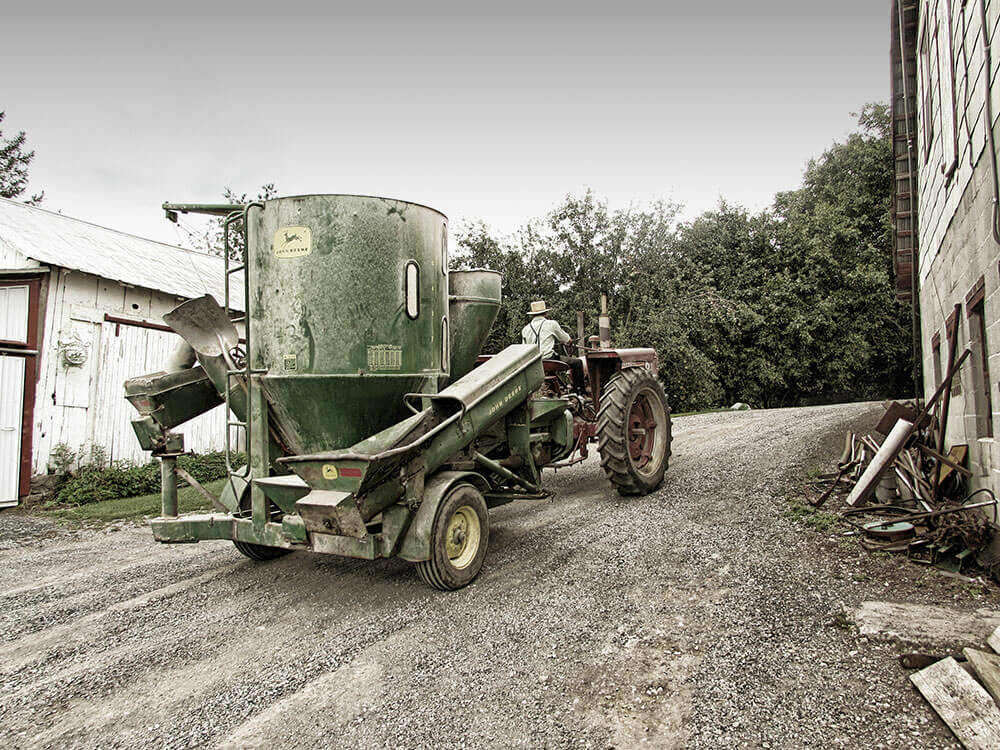You live for these dreams.
Your family. Your cows. The future of your business. Cargill helps feed these dreams and many more. We’ll share stories of how we help producers reach their goals of more milk production, improved component efficiency, higher income over feed costs or simply a better quality of life. It’s where dreams meet reality. It’s how Cargill helps dairies thrive.
Community.In the US, Cargill Animal Nutrition donates over $1.2 million and 18,000 hours to local communities. |
Passion.More than 150 specialists work with dairy producers every day to help feed their dreams. |
Experienced.Cargill has more than 100 years of animal nutrition experience rooted in trends, knowledge and customer insight. |
Precision.More than 60,000 forage samples a year are analyzed to help fine-tune diets for customers. |
Experienced.Cargill is a 150-year old family company dedicated to nourishing the world. |
Answer challenging questions.You can make smarter decisions by seeing impacts on feed efficiency, animal productivity, and income over feed costs. |
Keep growing.“The success of our nutrition program is really what’s creating opportunity for this expansion.” |
Beyond ration formulation.We analyze many inputs so you can make decisions that will help your business thrive. |
Living the dream.“When I was young I dreamed of doing what my father and grandfather did.” |
Never-ending quest.“I always push for more. More milk, more components and more margin.” |


